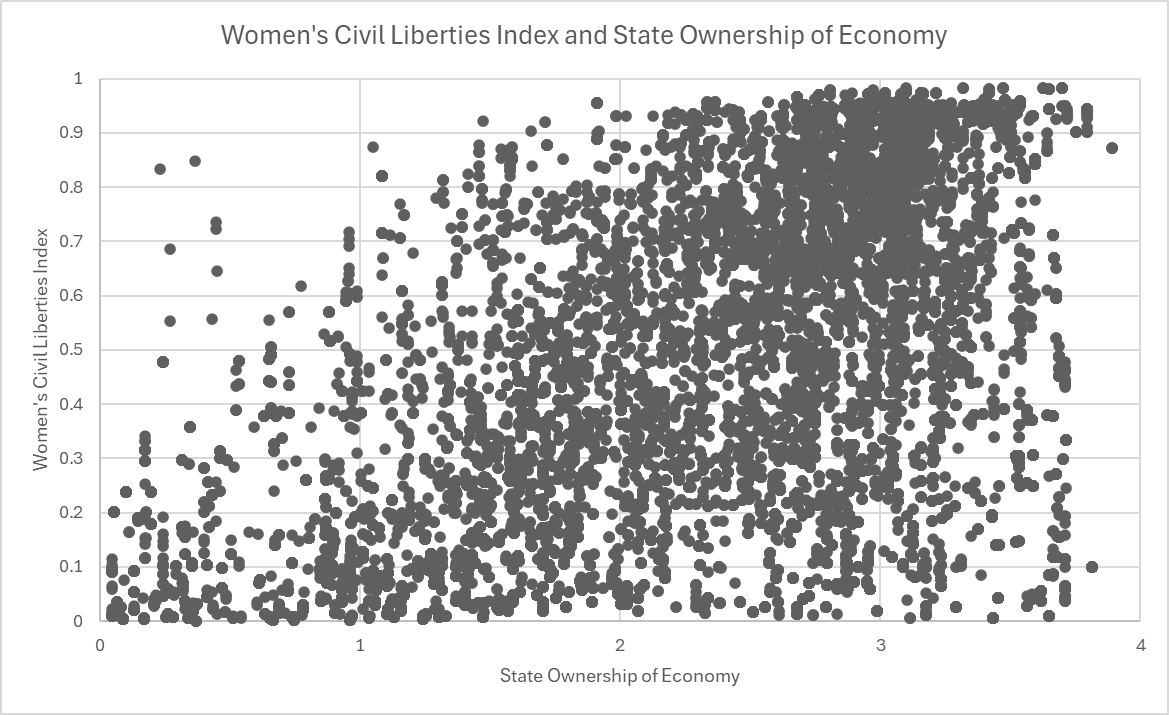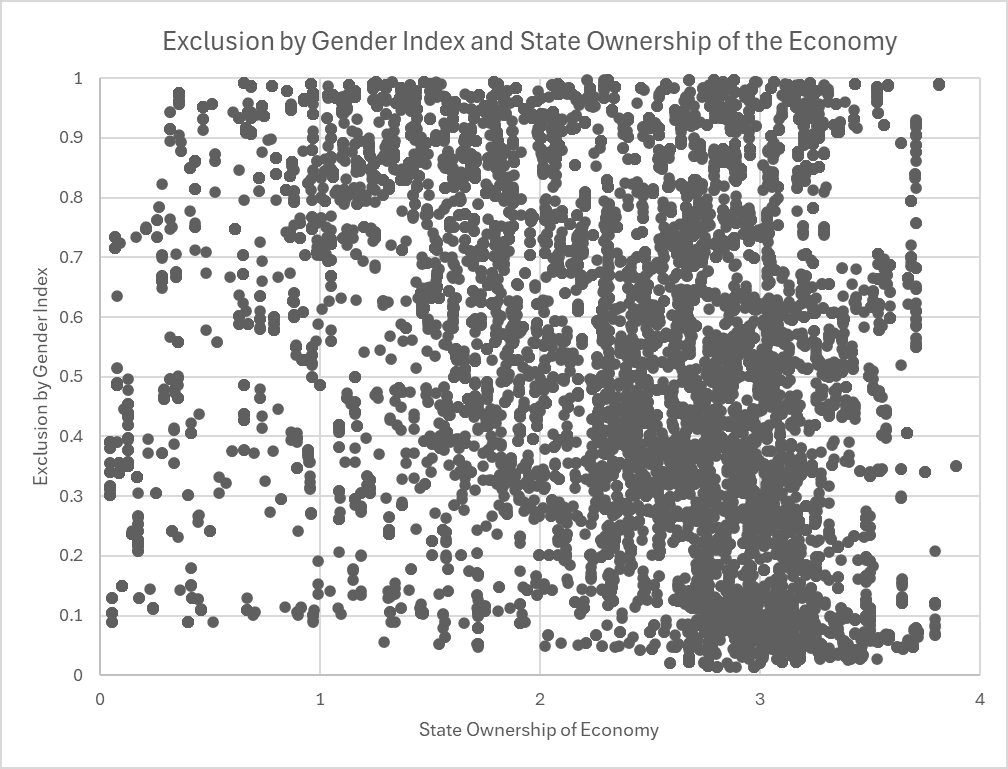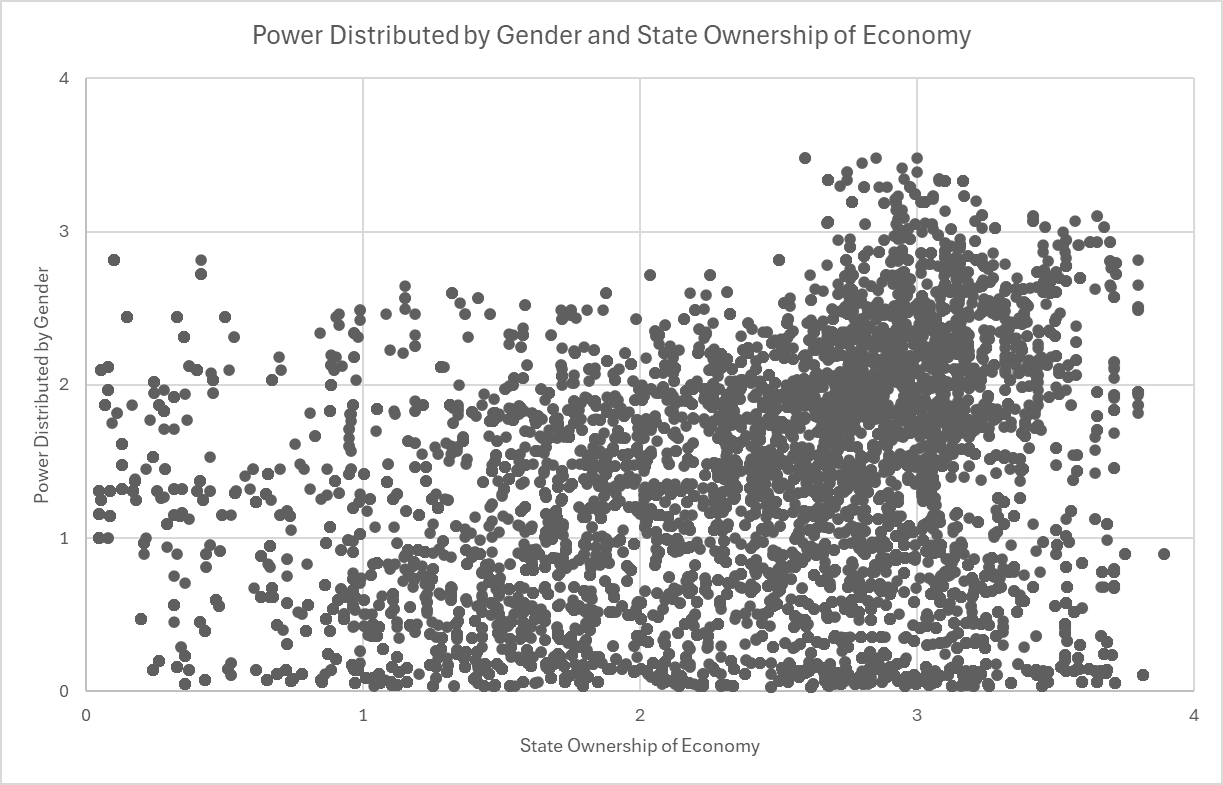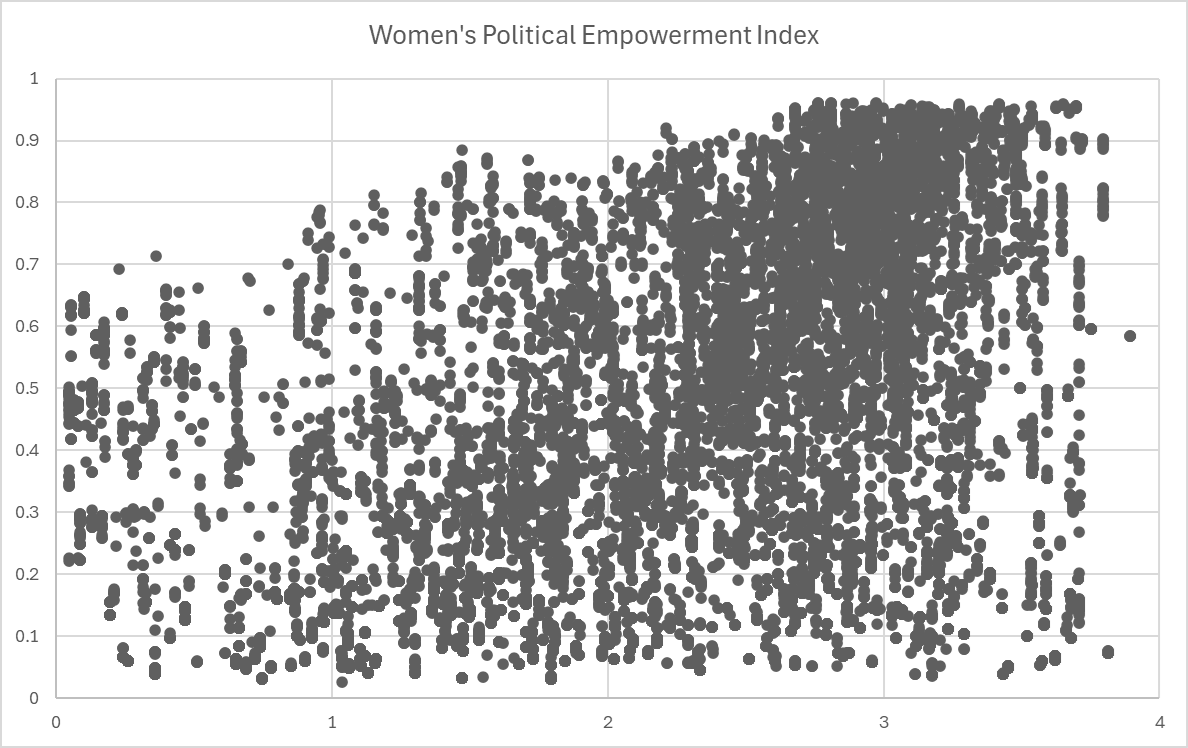Do Women Have Better Civil Liberties Under Socialism?
Socialism and the Suppression of Women's Rights
A 2018 book by Kristen Ghodesee argued that women have better sex under socialism. While empirically measuring that claim is pretty tricky, plenty of evidence exists on how women fare under socialism.
Using V-Dem data on State Ownership of the Economy and the Women’s Civil Liberties Index, we can examine if socialism has historically been associated with women having “the ability to make meaningful decisions in key areas of their lives” or not. State Ownership of the economy ranges from 0, with complete state ownership, to 4, with complete private ownership. Women’s civil liberties range from low (0) to high (1). The index includes measures of domestic freedom for women to move, freedom from forced labor, property rights for women, and access to justice. The data go as far back as 1789 for 202 countries, with year-country 27,734 observations.
So, what does the data show?
The data clearly show that socialism has historically been associated with the suppression of women’s civil liberties. The only countries to temporarily maintain women’s civil liberties above .7 were Ukraine, from 1990-1992, during their transition away from the Soviet Union, Algeria from 2019-2020, and Belarus from 1990-1991, during their transition away from the Soviet Union.
V-Dem also has an Exclusion by Gender Index that we can examine as well. This index compares the civil liberties of men to women, with 0 indicating women have much fewer civil liberties than men and 4 indicating that women and men have the same level of civil liberties.
Again, the historical data (26,335 year-country observations) suggests that historically socialism has not been associated with the achievement of gender inclusion to the degree that capitalism has.
V-Dem also has a Power Distributed by Gender dataset that shows whether men have a “a near monopoly on political power” (0) or that “men and women have roughly equal political power” (4) (27,734 observations). Again, the historical record of socialism has not tended to be associated with the equal distribution of political power.
Finally, there V-Dem also has a Women’s Political Empowerment Index. It ranges from low (0) to high (1) and measures the capacity of women to engage in societal decision-making (27,720 observations). Once again, socialism has, historically, not been associated with high levels of women’s political empowerment.
We can endlessly debate whether women have better sex under socialism, given the lack of empirical data. But we can say with certainty that this broad data show that socialism historically has been associated with the suppression of women’s rights.







